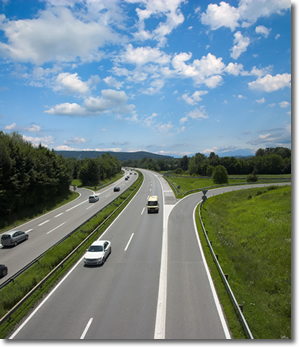Driving for Work Summer Safety TipsThe HSA reminds employers and employees of key seasonal tips for safer work related journeys over the coming months. Summer months bring more bicycles, motorcycles, caravans, agricultural vehicles, visiting tourists and seasonal traffic congestion to our roads. During school holidays, there are more children about, so extra vigilance is needed on journeys, during deliveries and collections as there are vulnerable road users around who are not aware of the dangers associated with vehicles and their actions are not predictable. We urge employers to bring the following tips to the attention of their employees who drive for work. With school holidays and tourist season in full swing, now is a good time to remind staff of safe driving for work practice in summer. By following simple guidelines before travelling and en-route, you will ensure your safety while driving for work. Before travelling, make sure your vehicle is roadworthy: even the slightest doubt about how it's running needs checking. Make sure that vehicle maintenance is up to date, and if in doubt arrange to have it looked at by a qualified mechanic. |  |
Before travelling, make sure your vehicle is roadworthy: even the slightest doubt about how it's running needs checking. Make sure that vehicle maintenance is up to date, and if in doubt arrange to have it looked at by a qualified mechanic.
Then, check the following at least daily (especially if the vehicle is hired or loaned):
- Tyre tread and pressures.
- Oil, water and fluid levels.
- Head -, brake - and indicator - lights.
- Safety equipment including warning-triangle, torch, hi-vis jacket, first-aid kit, sunglasses and maps.
Plan the route beforehand, and travel during off-peak periods if possible leaving ‘more than enough’ time to negotiate the holiday congestion. Check the weather forecast and travel news before and during journeys.
Timely route and traffic information is available from a range of organisations.
On the road, make sure everyone is buckled up, including rear seat passengers, and drive defensively by:
- Being prepared for unsafe actions by others or for poor driving conditions.
- Obeying the road signs and signals.
- Never ever use alcohol and drive.
Be extra careful in the early morning or at dusk and during the night, when animals and agricultural vehicles are most likely to be on the road.
If driving a van, truck or four-wheel drive:
- Take extreme care reversing.
- Check carefully for elderly people and children where you make deliveries or collections.
- Slow down in built up areas
- Slow down near cyclists
If driving a car:
- Keep out of others’ blind spots.
- Be seen: don't let larger vehicles hide yours from view
- Use daytime running lights.
Driver Fatigue: Don't give in to the temptation to ‘push on’! When you feel tired, have a good sleep. Rest breaks every 2 hours keep drivers alert by promoting blood circulation, make trips more pleasant for you and your passengers, let the vehicle cool down.
Have a good summer, and please put safety first when driving for work